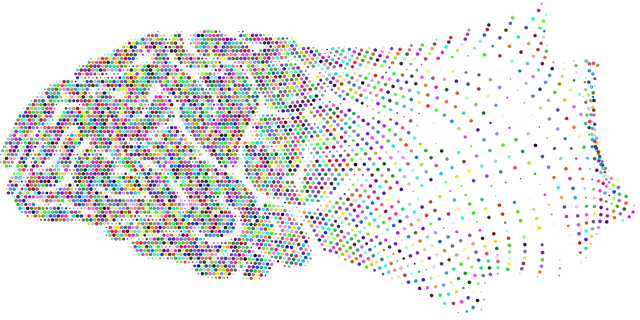Understanding Mental Health Data is crucial for effective therapy for crisis counseling. This process involves structured interviews, surveys, and self-reporting tools for data collection, followed by meticulous cleaning and organization. Advanced analytical techniques like machine learning and predictive analytics uncover hidden patterns in client behaviors, enabling personalized therapy, early risk identification, and proactive management. Integrating mindfulness meditation and trauma support facilitates holistic approach, enhancing precise risk assessment and informed decision-making. Data-driven insights allow tailored interventions, improved emotional regulation techniques, and better long-term mental health outcomes for therapy for crisis counseling.
Mental health data analysis is a powerful tool in understanding and improving crisis counseling strategies. This article delves into the process of interpreting mental health data, from collection and preparation to utilizing advanced analytical techniques. We explore how these methods provide deeper insights, enabling practitioners to make data-driven decisions that enhance therapy for crisis counseling. By examining specific techniques and their impact, this guide illuminates the importance of evidence-based practices in improving outcomes for those in need.
- Understanding Mental Health Data: Collection and Preparation
- Advanced Analytical Techniques for Deeper Insights
- Interpreting Findings to Inform Crisis Counseling Strategies
- The Impact of Data-Driven Decisions in Therapy
Understanding Mental Health Data: Collection and Preparation

Understanding Mental Health Data is a multifaceted process crucial for effective therapy and crisis counseling. The journey begins with data collection, where various methods are employed to gather insights into individuals’ psychological well-being. This includes structured interviews, surveys, and self-reporting tools designed to assess symptoms, behaviors, and overall mental health status. Accurate recording of these data points is essential, ensuring privacy and confidentiality to foster trust among participants.
Preparation of the collected data involves meticulous cleaning and organization. This step ensures that the information is consistent, reliable, and ready for analysis. In this phase, researchers might identify and handle missing values, outliers, or errors, using appropriate techniques to maintain data integrity. The prepared dataset serves as a robust foundation for further exploration, enabling mental health professionals to gain valuable insights into trends, patterns, and correlations that inform evidence-based practices like Compassion Cultivation Practices and Stress Management Workshops Organization, ultimately contributing to Mental Health Policy Analysis and Advocacy.
Advanced Analytical Techniques for Deeper Insights

In the realm of mental health data analysis, advanced analytical techniques are revolutionizing how we gain insights into client behaviors and treatment outcomes. By employing sophisticated methods such as machine learning algorithms and predictive analytics, professionals can uncover nuanced patterns that were previously hidden in traditional data sets. This enables them to offer more personalized therapy for crisis counseling, tailored to each individual’s unique needs and circumstances. For instance, these tools can help identify high-risk clients who might benefit from enhanced support or early intervention, thereby improving overall treatment effectiveness.
Risk management planning for mental health professionals also benefits from these advanced techniques. By analyzing historical data on client demographics, treatment modalities, and outcome measures, practitioners can anticipate potential challenges and implement proactive strategies to mitigate risks. Moreover, integrating mindfulness meditation and trauma support services within the analytical framework ensures a holistic approach to understanding and addressing complex mental health issues. This comprehensive view allows for more precise risk assessment and informed decision-making in crisis counseling settings.
Interpreting Findings to Inform Crisis Counseling Strategies

When analyzing mental health data, the insights derived can be a powerful tool to enhance crisis counseling strategies. Interpretations of findings should focus on identifying patterns and trends that can guide therapists in their approach to therapy for crisis counseling. For instance, data might reveal heightened rates of anxiety or depression among certain demographics during specific periods, indicating the need for tailored interventions.
By understanding these patterns, mental health professionals can develop effective risk management planning, incorporating strategies like emotional regulation techniques and depression prevention programs. This data-driven approach allows counselors to offer more personalized support, ensuring that their crisis counseling services are not only responsive but also proactive in addressing emerging mental health challenges.
The Impact of Data-Driven Decisions in Therapy

In today’s digital era, mental health data analysis and interpretation are revolutionizing therapy for crisis counseling. By leveraging advanced tools and techniques to analyze patient records, therapists can gain valuable insights into treatment effectiveness and personalize care plans. Data-driven decisions in therapy allow professionals to identify patterns, track progress, and adapt interventions as needed, fostering a more tailored and responsive approach. This not only enhances the quality of care but also builds stronger connections between therapists and clients, as informed decisions based on data can lead to increased empathy and compassion.
Moreover, integrating data analysis into therapy supports the implementation of evidence-based practices such as empathy building strategies and compassion cultivation exercises. By understanding what works best for individual patients, therapists can incorporate specific emotional regulation techniques that promote resilience and well-being. This tailored approach not only improves short-term outcomes but also empowers individuals to better manage their mental health in the long term, creating a more sustainable and positive impact on their lives.
Mental health data analysis has evolved into a powerful tool, offering deeper insights into crisis counseling strategies. By understanding and preparing mental health data effectively, advanced analytical techniques can uncover trends and patterns that inform more targeted and effective therapy for crisis counseling. The impact of data-driven decisions in therapy is profound, ensuring resources are allocated efficiently and care is personalized to meet the unique needs of individuals facing mental health crises. As this field continues to grow, data analysis will remain a game-changer in navigating complex mental health landscapes and enhancing the effectiveness of crisis interventions.














